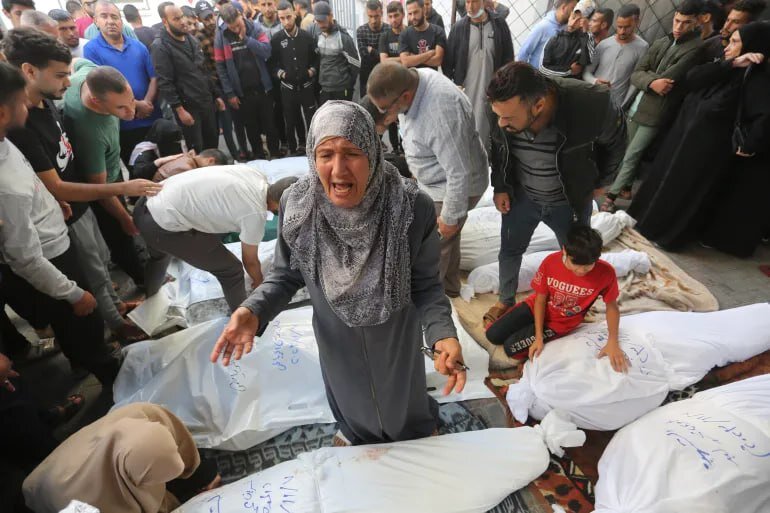Feasibility of filing a lawsuit against Israel and its allies in ICJ

With more extensive and brutal attacks than ever before, the Zionist regime has destroyed neighborhoods and residential areas in Gaza, paralyzed the medical system, destroyed hospitals, and displaced hundreds of thousands of women and children.
Examining the evidence, images, documents, and official and authentic reports of the international monitoring bodies shows that a diverse set of the most important fundamental and customary rules of international law and regulations of international humanitarian law has been violated on a very wide scale during the recent war of the Zionist regime against the people living in the Gaza Strip. Numerous examples of crimes against humanity, war crimes, and genocide crimes are clearly seen in this war.
Bombing residential houses, killing innocent people including women and children, attacking civilian facilities, houses, schools, mosques, police stations, and public places, destroying vital infrastructure, cutting off water and electricity distribution networks, destroying hospitals and medical centers, preventing the transportation of the wounded and sending medicine are some of the most important examples of crimes against humanity and war crimes and violations of the four Geneva conventions of 1949 by the Zionist regime in the Gaza war. During the attacks on the Gaza Strip, the forces of the Zionist regime prevented the delivery of essential things for the survival of its residents, knowing that the victims were members of a larger group called the residents of Gaza and massacring them indiscriminately. In this way, both the actus reus and mens rea of the genocide crime have been fulfilled based on the definition provided in Articles 2 and 3 of the Convention on the Prevention and Punishment of Genocide (December 9, 1948).
According to the 1948 Convention on the Prevention and Punishment of the Crime of Genocide, member states are not only required not to commit genocide or incite it but also, they have an international obligation to prevent the commission of genocide or incitement to genocide as an independent criminal conduct.
According to the 2007 substantive decision of the International Court of Justice (ICJ) in the case of the Application of the Convention on the Prevention and Punishment of the Crime of Genocide (Bosnia and Herzegovina v. Serbia and Montenegro), the obligation to prevent genocide is a positive commitment and requires the use of all measures and facilities available and provided by a government that can take action to prevent genocide, either in its territory or in other territories, due to the extra-territorial nature of the obligations of the Genocide Convention.
According to the procedure of the International Court of Justice, this obligation is an obligation to means, not an obligation to result, and even its ineffectiveness in practice does not prevent the fulfillment of this obligation and its validity. In addition to this, the aforementioned obligation begins when a serious threat of genocide is observed and occurs, that is, before the beginning of the genocide, so that deterrence and prevention are possible.
Now, with the massacre of more than 24,500 people in Gaza, more than 10,000 of whom children and more than 7,000 women, the wounding of more than 61,500 others, and the disappearance of 7,000 people, the cutoff of water, food, and electricity, and the destruction of infrastructure such as hospitals and health centers that lead to the total or partial deterioration of the physical strength of the Palestinians in Gaza as the largest open-air prison in the world means that the crime of genocide by the Zionist regime has been fully realized.
Statements like Israeli war minister Yoav Gallant saying "we are fighting against animals" and starving Gaza’s 2.3 million population are examples of collective punishment that prove the occurrence of genocide or incitement to genocide, which prevention of both of these crimes is the obligation of the parties of the convention.
Based on this, the member states of the convention can file a lawsuit against the Zionist regime or one or more allied states of this regime in the International Court of Justice for committing an international criminal act through the violation of a treaty obligation arising from the Genocide Convention.
On December 29, 2023, the South African government filed a lawsuit against Israel based on Article 9 of the Convention on the Prevention and Punishment of Genocide. The lawsuit is related to Israel's actions against the people of the Gaza Strip. Other governments should support this action and the International Court of Justice should issue an Interim Order to prevent further genocide of Palestinians.
* Zeinab Farahmandzad holds a Ph.D. in international law from Allameh Tabatabai University
